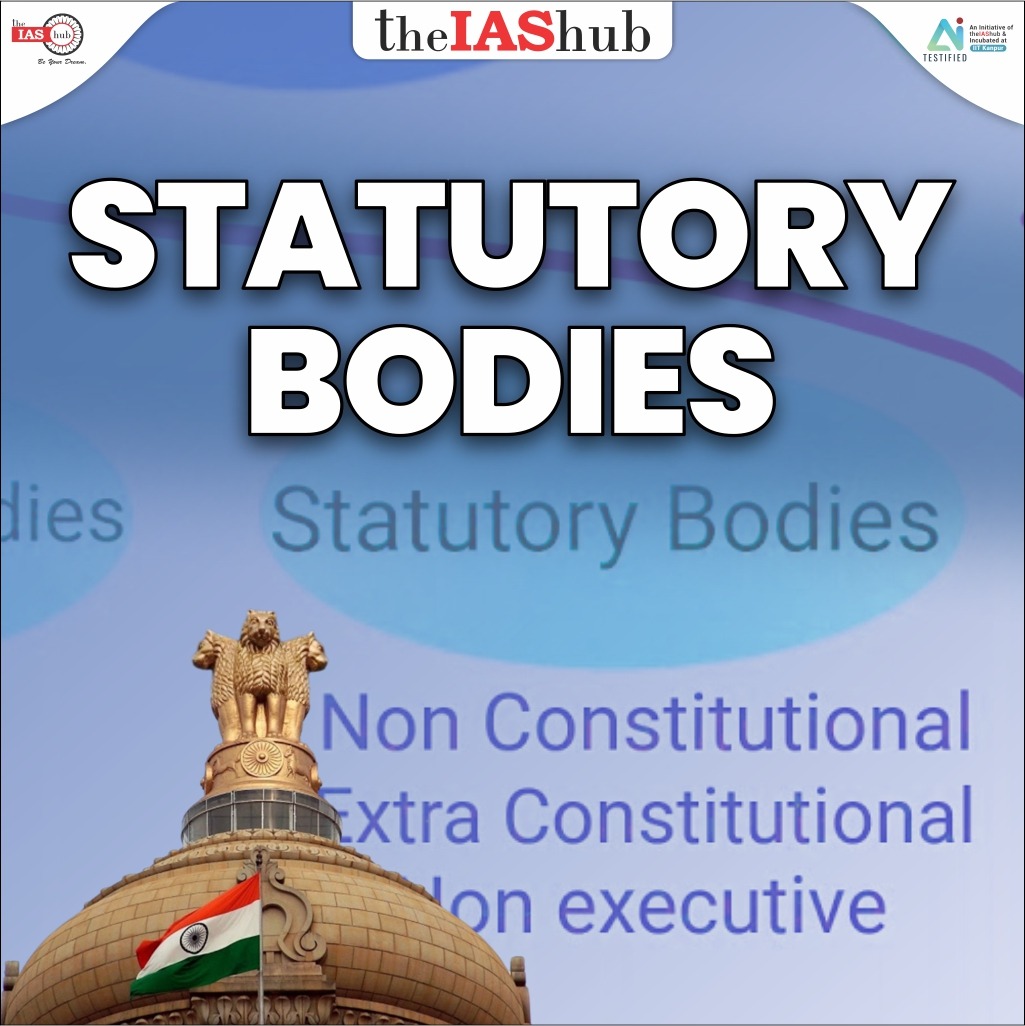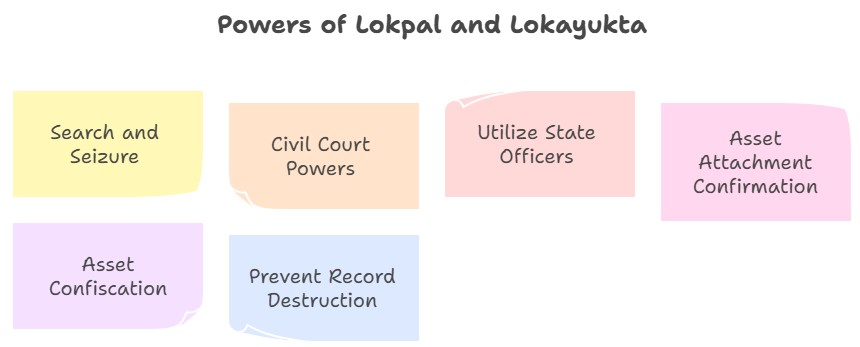Learn about statutory bodies in India with focus on Lokpal and Lokayukta. Understand their composition, powers, challenges, and role in fighting corruption. Explore issues, reforms, and the way forward for stronger anti-corruption mechanisms.


Statutory Bodies are non-constitutional bodies that are established by an act passed by the Parliament or the state legislatures. Statutory bodies do not have any definition mentioned in the Constitution. It is a self-governing body.

It is a known fact that corruption is a major problem, which endangers the stability and security of the nation; threatens socio-economic and political development; and undermines the values of democracy and morality.
AnnaHazare started a hunger strike on 5 April 2011 to exert pressure on the Indian government to enact a stringent anti-corruption law, The Lokpal Bill, 2011 as envisaged in the Jan Lokpal Bill, for the institution of an ombudsman with the power to deal with corruption in public places. The fast led to nationwide protests in support.
Mandate of Lokpal and Lokayukta



Lokayukta and Lokpal are becoming more popular. Due to massive government expansion and corruption. Corruption hurts economic growth and national security. Thus, more transparency and probity in public affairs were suggested. At this juncture when India is heading the G20 Anti-Corruption Working group, Lokpal should rise to the occasion and make every effort to strengthen the anti-corruption landscape in the country.


Refine your answer writing skills and elevate your UPSC preparation with personalized support and expert feedback.
Fill out the form to get started with the program or any other enquiries !








Are you dreaming of becoming an IAS officer? Then, IAShub can be your best guide. It is one of the Best IAS Coaching in Delhi. Many students who want to clear the UPSC exam join IAShub for learning. The institute gives both online and offline classes. Their teachers are experienced and helpful. They easily explain every topic. Students also get notes, tests, and tips to do well in the exam.
IAShub is in Delhi and is trusted by many UPSC students. It offers coaching for every part of the UPSC exam – Prelims, Mains, and Interview. The classes are simple and easy to understand. The teachers are experts and guide students in the right way. IAShub is also known for its helpful notes, test series, and answer-writing practice. IAShub is the best coaching in Delhi and also gives UPSC Online Classes. This helps students from any place in India to learn. The online classes are live and also recorded. So, students can watch them anytime. These classes cover the full UPSC syllabus.
Here are some important services provided by IAShub:
The UPSC Civil Services Exam has three parts:
This exam is tough, but with the right guidance, it becomes easy to manage. Students must study smart and stay regular.
IAShub supports students from the beginning to the end. It gives the right books, tests, and notes. The classes are easy to follow, and the teachers are always ready to help. Students get personal doubt sessions too. The test series and answer checking help students learn where they need to do better. Also, free study materials save time and money.
IAShub also guides students during the final stage – the interview. Experts take mock interviews and give useful tips. This full support makes IAShub one of the best IAS coaching in Delhi.